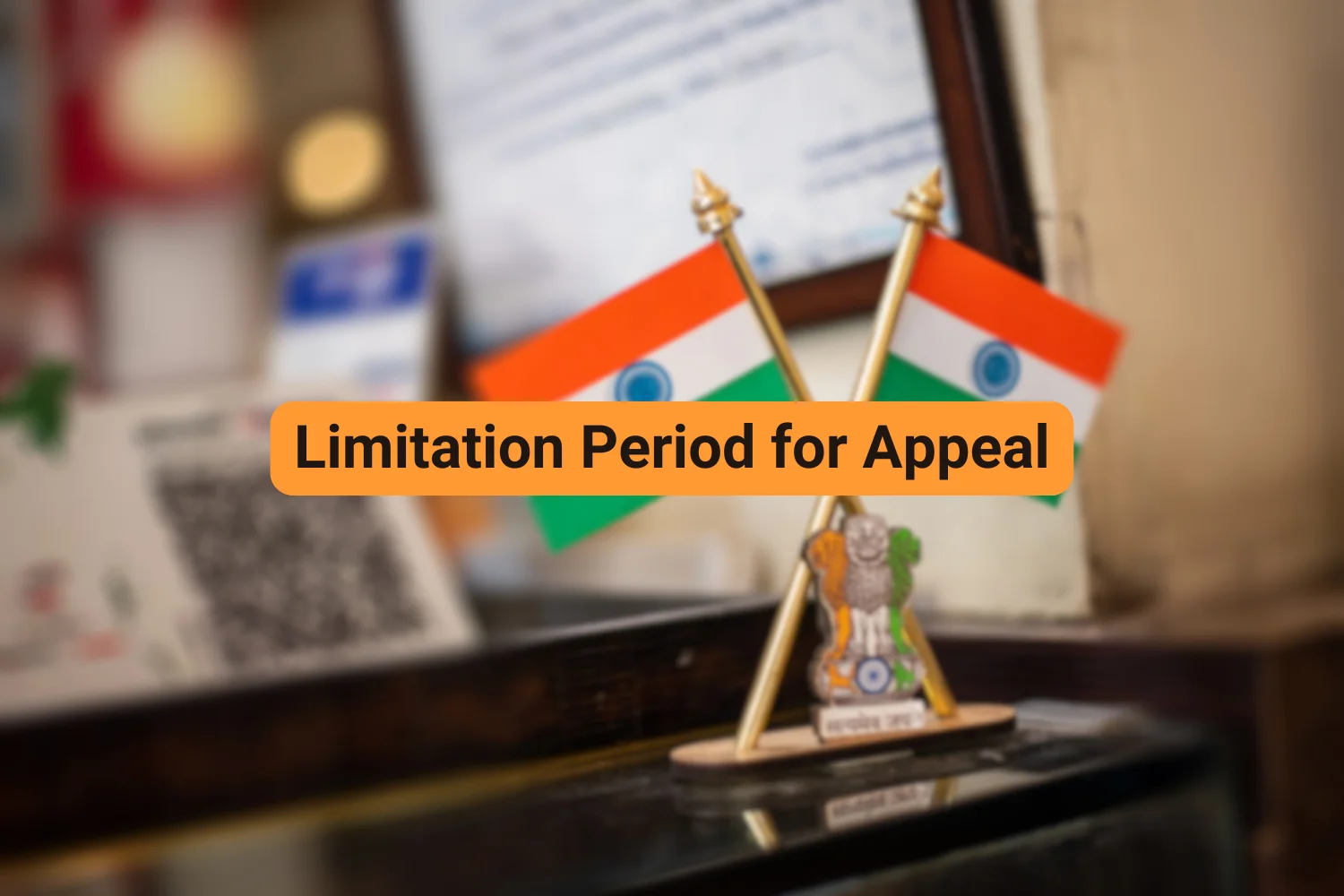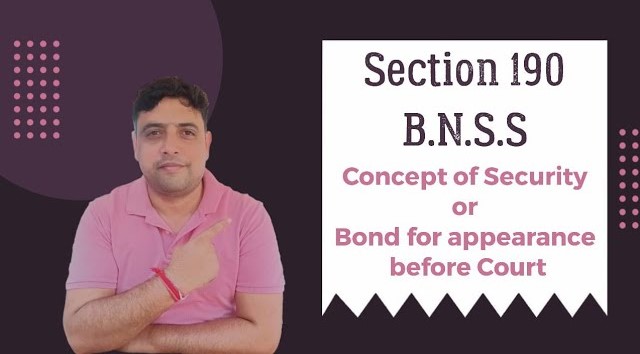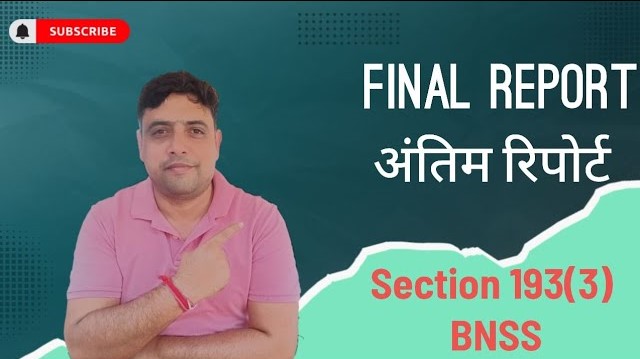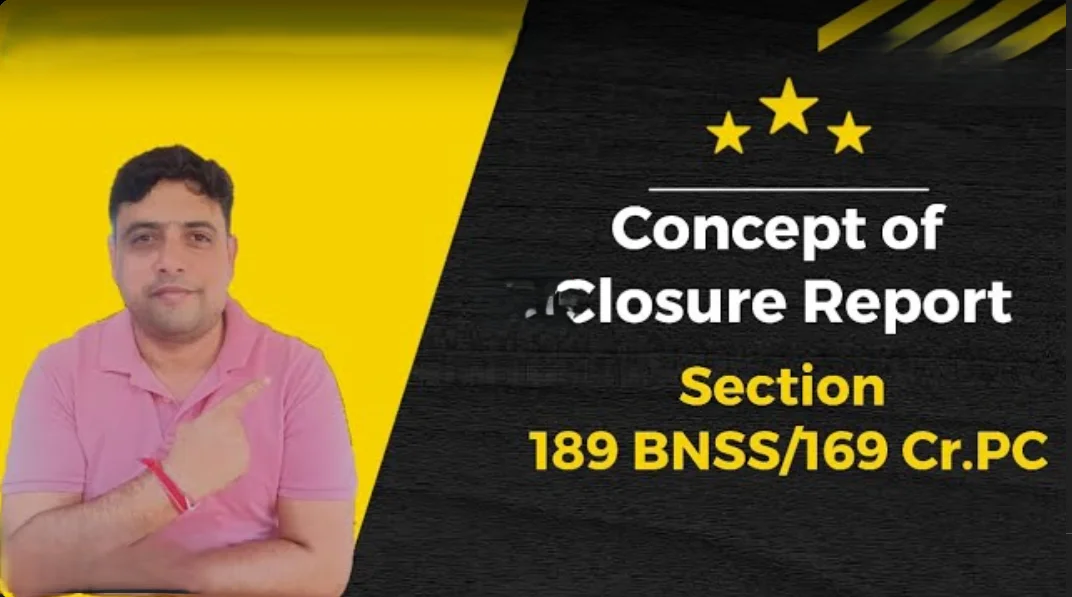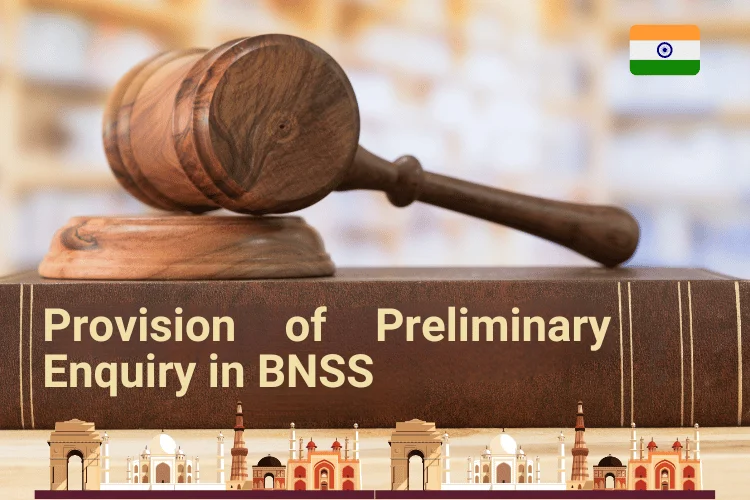FRAMING OF CHARGES: CONTENTS, EFFECT OF ERRORS, ALTERATION AND EFFECT OF ALTERATION
INTRODUCTION
A fundamental principle of criminal jurisprudence is that the accused has the right to know the exact nature of the charges against them. This information is crucial for preparing a defence. In India, the Criminal Procedure Code ensures that the accused is informed of the charges at the outset of the trial. In serious cases, the Code requires that the charges be formulated and written with precision and clarity. This "charge" is then read and explained to the accused.
The purpose of a charge is to provide clear and unambiguous notice of the accusation, giving the accused precise information about the charges they face. Before summoning an individual to face charges, the Court must have prima facie material showing that the person is guilty of the alleged offense.
The Criminal Procedure Code outlines the requirements for a charge in Sections 211-214. Section 215 deals with defective charges, while Sections 216 and 217 provide for alterations or additions to a charge. Section 218 aims to prevent the accused from being embarrassed in their defence when multiple offenses are lumped together in one charge or tried together.
FORM & FRAMING OF CHARGE
A charge is an important step in a criminal proceeding. It is that which separates the state of inquiry from a trial. Sec. 2(b) defines a charge as including any head of charge, when the charge contains more heads than one. Thus, the Code does not define what a charge is. In law, a charge may be defined as a precise formulation of a specific accusation made against a person of an offence alleged to have been committed by him.
A charge can be framed if there is sufficient material to suggest that a crime may have been committed. At this stage, the court only needs to consider whether there is a prima facie case, meaning a basic case that shows:
- An offence was committed
- The accused person was involved
The purpose of a charge is to tell the accused, as precisely and concisely as possible, about the matter with which he is charged, and Sections 211-214 give clear an explicit direction as to how a charge is to be drawn up. The framing of a proper charge is thus vital to criminal trial, and is a matter on which the Judge ought to bestow the most careful attention.
The forms in which the charges may be framed are set forth Second Schedule of the Code.
REQUIREMENTS OF A VALID CHARGE (SEC. 211-214)
Contents: A valid charge must contain the following -
- State the offence with which the accused is charged.
- Use the specific name of the offence if provided by law.
- If no specific name is given, provide enough definition to inform the accused of the charges.
- Mention the law and section of the law allegedly violated.
- Be written in the language of the court.
Additional requirements:
- A charge is equivalent to a statement that all legal conditions required to constitute the offence were fulfilled (Sec. 211(5)).
- If the accused has a previous conviction, the charge must state the fact, date, and place of the previous conviction (Sec. 211(6)).
- Even if omitted, the court can add this information at any time before sentencing (Sec. 211(7)).
These requirements ensure that the accused is fully informed of the charges and can prepare an effective defence.
Case Law
Main Pal vs. State of Haryana, AIR 2010 SC
The purpose of framing a charge is to ensure that the accused understands what they are being tried for and the essential facts they need to defend against. The charge should include details such as the date, time, place, and person against whom the offence was committed. However, in assessing whether there was prejudice or guilt, courts should focus on substance rather than technicalities. The main concern is whether the accused had a fair trial and knew what they were being tried for. If there is an error in the charge but the accused was aware of it, there is no prejudice or failure.
PARTICULARS AS TO TIME, PLACE, AND PERSON (SEC. 212):
The charge must include:
-
- Particulars about the time of the alleged offence (date, hour, etc.)
- Particulars about the place of the alleged offence (location, address, etc.)
- Particulars about the person against whom the offence was committed (name, relationship, etc.)
- Particulars about the thing in respect of which the offence was committed (property, object, etc.)
Simplification of Charges for Certain Offences (Sec. 212(2))
When charging the accused with:
- Criminal breach of trust
- Dishonest misappropriation of money or movable property
It is sufficient to specify:
- The gross sum or
- Describe the movable property involved
- The dates between which the offence occurred (without specifying exact dates or particular items)
This type of charge is deemed to be a charge of one offence under Section 219, provided that the time period between the first and last dates does not exceed one year. This simplifies the charging process for these specific offences.
These particulars must be reasonably sufficient to give the accused notice of the matter with which they are charged, enabling them to prepare an effective defence.
For example:
"Rahul is accused of dishonestly misappropriating a sum of Rs. 50,000 between June 1st and August 31st."
This simplified charge is considered a single offence, as long as the time period doesn't exceed one year.
MANNER OF COMMITTING OFFENCE: WHEN TO BE STATED (SEC. 213-214)
In certain cases, the details provided in Sections 211 and 212 may not be enough to give the accused sufficient notice of the charges against them. In such situations, Section 213 requires that the charge must also include:
- Particulars of the manner in which the alleged offence was committed
- Enough details to provide the accused with sufficient notice of the charges
Section 213 further clarifies that when the offence is committed by several acts, the charge need not specify each act, but only the manner in which the offence was committed.
This ensures that the accused has a clear understanding of the allegations and can prepare an effective defence.
SECTION 214: INTERPRETATION OF WORDS IN A CHARGE
This section states that in every charge:
- The words used to describe the offence are deemed to have the same meaning as they have under the law that makes the offence punishable.
- The words are interpreted in the same sense as they are defined or understood by the relevant law.
In essence, this section ensures that the words used in a charge are understood in the same way as they are defined by the law that governs the offence, avoiding any confusion or misinterpretation.
Cases when No Charge Need be Framed
No charge need be framed in the following three cases, namely:
(a) for inquiries under Sec. 116;
(b) for trials of summons-cases under Sec. 251; and
(c) for summary cases where no appeal lies (Sec. 263)
EFFECT OF ERRORS [SECTION 215]
Section 215 and 464 of the Criminal Procedure Code (CrPC) deal with the effect of errors or omissions in charges on criminal trials.
Section 215 states that:
- Errors or omissions in stating the offence or particulars in the charge do not invalidate the case unless the accused was misled and a failure of justice occurred.
Section 464 provides that:
- No finding, sentence, or order is invalid solely due to the absence or error in the charge, unless the court of appeal or revision determines that a failure of justice resulted (Sub-section 1).
- If a failure of justice occurred, the court may:
- Order a new charge to be framed and the trial to continue from that point (Sub-section 2(a)).
- Direct a new trial with a revised charge (Sub-section 2(b)).
In essence, these sections ensure that technical errors or omissions in charges do not automatically invalidate a case, and that the focus remains on ensuring justice is served.
Case Laws
These three court cases highlight the importance of proper framing of charges in criminal trials:
Ramkrishna vs Maharashtra (1980):
A charge is the foundation of the accusation, and it's crucial to ensure it's properly framed and supported by available evidence.
Sushil Ansal vs State (2014):
An error, omission, or irregularity in the charge does not automatically invalidate a sentence or order, unless it can be shown to have caused a failure of justice.
Bharamappa Gogi v. Praveen Murthy and Others (2016):
-
- The purpose of framing a charge is to inform the accused of the incriminating facts and circumstances, allowing them to prepare their defense.
- Failure to do so may prejudice the accused, as they may not be aware of the full extent of the accusations against them.
These cases emphasize the significance of proper charge framing to ensure a fair trial and prevent miscarriage of justice.
When the charge did not correctly set out the facts of the case, but it was clear from the answers which the accused gave to the court, that he understood exactly what the case against him was, held that the defect in the framing of the charge did not prejudice the accused.
Similarly, when the accused did not take any objection to the defect in the form of the charge at the earliest possible occasion, and no protest was made either in the Revisional Court or even in Appellate Court and they knew perfectly well what offences they were charged with, it was held that the irregularity had not occasioned any failure of justice.
ALTERATION/ADDITION TO THE CHARGE (SEC. 216-217)
The court has the power to alter or add to any charge at any time before judgment is pronounced (Sec. 216). This power is discretionary and can be exercised in the following ways:
-
- Alteration or addition to the charge: The court can modify the existing charge or add new charges based on the evidence presented during the trial.
-
- Reading and explanation: Every such alteration or addition must be read and explained to the accused in the language they understand.
-
- Proceeding with the trial: If the alteration or addition is minor and won't prejudice the accused or prosecutor, the court may proceed with the trial as if the altered/added charge was the original charge (Sec. 216(1)).
-
- Adjournment or fresh trial: If the alteration or addition is significant and may prejudice the accused or prosecutor, the court may:
- Adjourn the trial (Sec. 216(4)) to allow the accused to prepare their defence.
- Direct a fresh trial (Sec. 216(4)) with the altered/added charge.
This provision ensures that:
-
- The accused is aware of the charges and has a fair opportunity to defend themselves.
- The court can make necessary adjustments to the charge without disrupting the trial.
- Justice is served by allowing the court to respond to emerging evidence or changing circumstances during the trial.
Section 217 provides that if a new charge is introduced, the court must ensure that the accused has a fair opportunity to defend themselves against the new charge. This may involve adjourning the trial or directing a fresh trial.
If the altered or added charge requires prior sanction from an authority for prosecution:
The case cannot proceed until such sanction is obtained, unless sanction has already been granted for the same facts (Sec. 216(5)).
When a charge is altered or added to by the court after the trial has commenced:
The prosecutor and accused have the right to:
- Recall or re-summon witnesses already examined to testify on the altered/added charge (Sec. 217(a)).
- Call additional material witnesses (Sec. 217(b)).
However, the court may refuse to allow recall or re-examination of a witness if it considers it unnecessary or intended to delay or defeat justice.
The court may alter/ add to any charge upon its own motion or on application by the prosecution which should be made immediately after the charge is explained by the Magistrate. Alteration or addition may be done even at the appellate stage before the pronouncement of the judgment of appeal.
Case Laws
Dr Nallapareddy Sridhar Reddy vs the State of Andhra Pradesh 2020 SC
When a court is deciding whether to frame charges against someone, they need to look at the evidence and documents presented. They must consider if the facts, taken at face value, show that all the necessary elements of the alleged crime are present. If an important document, like an additional charge sheet, is overlooked, it might mean that additional charges aren't framed. However, the court's primary task is to determine if there's enough evidence to start a trial.
In simpler terms, the court is like a gatekeeper, ensuring that there's sufficient evidence to proceed with a trial. They must carefully review the evidence and documents to make this decision.
Bhagabat Das vs. State of Orissa (1989)SC
The purpose of the section (likely referring to Section 216 of the Code of Criminal Procedure, 1973) is to prevent miscarriage of justice due to errors in formulating charges. However, minor irregularities in stating the details of the offense in the charge will not impact the trial or its outcome, as long as they do not cause significant prejudice to the accused.
In essence, this case law emphasizes that trivial errors in charge formulation will not necessarily invalidate a trial or its outcome, as long as they do not substantially affect the accused's rights or the fairness of the trial.
CBI vs. Karimullah Osan Khan (AIR 2014 SC).
In this case following points were highlighted by the Supreme Court
- The trial court has significant powers to alter or add charges, even after:
- Completion of evidence
- Arguments have been heard
- Judgment has been reserved
- However, this can only be done before the judgment is pronounced.
- The court must ensure that its orders do not prejudice the accused.
- Modification of charges under Section 216 is only possible when there is a connection or link between the new charge and the existing material before the court.
In essence, this case law highlights the trial court's discretion to modify charges, even at a late stage, as long as it does not harm the accused and is supported by relevant material.
State of Gujrat vs Girish Radhakrishna Varde 2014 SC
Once the police have submitted the charge sheet, the prosecution has the opportunity to argue before the court about which charges should be filed based on the evidence gathered during the investigation. The court considers all the materials collected during the investigation, as well as the information provided in the First Information Report (FIR) and the charge sheet. Depending on these factors, the court decides whether to frame specific charges and which sections of the law should apply. This process ensures that the charges align with the evidence and the law.
Anant Prakash Sinha v. State of Haryana and Another
The Supreme Court in this case held that a court can alter a defective charge under Section 216 of the Code of Criminal Procedure (CrPC) if:
- There is a defect or omission in the charge
- The alteration is based on material available on record, including:
- Complaint or FIR
- Accompanying documents
- Material brought on record during trial
The court can make such alterations at any time before pronouncing judgment. It is not necessary to consider every circumstance, but the principle is to frame a charge that accords with the materials produced before the court. Additionally, the court can alter a charge even if evidence has already been presented, as Section 216 CrPC does not require that evidence must be let in before altering a charge.
CONCLUSION
Framing of charges serves as the foundation of the trial process, ensuring that the accused is informed of the specific offences they are being tried for. It also sets the parameters for the subsequent trial proceedings, guiding the prosecution and defence in presenting their cases. It is a significant step in upholding the principles of natural justice and ensuring a fair trial for the accused.







